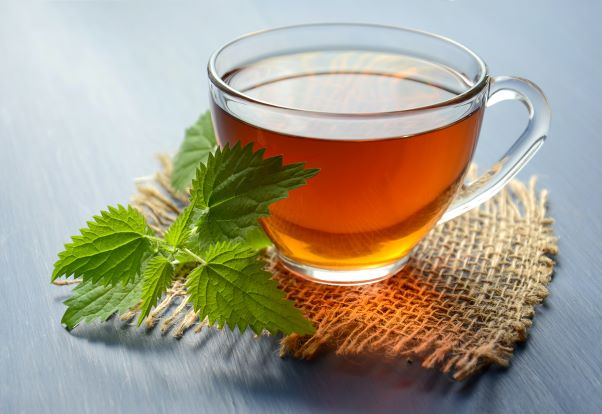What are fibrous foods and how dietary fibre helps you?

Are you fed up taking pills for your troubled bowels? You have tried a lot of medicines, powder for bowel obstruction which has defied almost everything and turned your toilet-trips into nightmarish. Well, your this constant suffering from constipation may come to an end if you slightly change your eating habits by incorporating fibre foods for constipation. Yes, adding high fibrous foods to your diet may completely alleviate constipation. Besides, eating fibrous foods have a number of other advantages too.
What are high fibrous foods or dietary fibre?
Dietary fibres are certain parts of plant food which our body cannot digest or absorb. These fibres are different from other food components like fats, proteins or carbohydrates and they are not digested by our body. So, it almost passes intact through our stomach, intestine and colon, and eventually it gets expelled out of our body. As these types of foods are not digested so they keep our digestive system clean and healthy, ease bowel movement and flush harmful carcinogens out of our body.
Different types of fibre
Fibre can be divided into two types – soluble fibre and insoluble fibre.
Soluble fibre: Soluble fibre easily gets digested in water. Its ability to blend with water makes it into a gel- like substance in the gut. This type of fibre is found in beans, oats, carrots, apples, and citrus fruits etc.
Insoluble fibre: Insoluble fibre does not mix with water and it passes intact through the digestive tract. So, it acts like ‘bulking’ agent for the stool and hastens the passage of food and waste through our gut. Rich sources of insoluble fibre are whole wheat flour, nuts, beans, vegetables etc.
What if our diet lacks fibrous food?
What if you don’t have fibre supplement or your daily foods don’t have enough fibre? Well, in the short term this cannot be so disturbing to you, and you might try to play down the importance of dietary fiber because initially lack of fibre might result in constipation and sluggishness. But in the long run, it might be a reason of some serious issues like heart disease and type 2 diabetes.
What does high fibre diet do to you?
Fibre supplement or including fibre to your diet has a number of benefits. Fibre improves your overall health by bringing many desirable changes in your body. Here are the benefits of fibrous foods:
1.Fiber supplements for constipation
Fibre in your diet adds weight and size to your stool. As a result, your stool becomes bulky which easily passes through digestive tract. So fibrous foods help in relieving constipation. Further, in case you have loose or watery stool, taking high fibrous foods solidifies your stool as fibre absorbs water.

High fibre foods may relieve constipation
2. Fibre Helps in keeping bowel healthy
Fibrous vegetables and fruits helps in certain diseases of your digestive tract. Dietary fiber plays a great role to prevent diseases of colon.
3. Fibre Helps in lowering cholesterol level
Certain soluble fibres might help in lowering blood cholesterol levels as they lower low density lipoprotein or ‘bad cholesterol’ levels in our body. Also, a diet rich in fibre might be beneficial for some heart-related diseases like in reducing blood pressure and inflammation.
4. Fibre Normalises blood sugar levels
Foods rich in fibre slow the absorption of sugar and so help in improving blood sugar levels. Further, fibre supplement might reduce the risk of type 2 diabetes.
5. Fibre in Weight loss:
Foods rich in fibre tend to be more filling in comparison to low fibre foods. As a result you eat less and remain satisfied for long. Also it takes long to eat high fibre foods and these foods are less ‘energy dense’ too, which is why though you eat more you get less calorie.
What to include as fibrous foods
Considering the benefit of fibrous foods, it is very important that you make certain lifestyle changes so that you can increase the intake of fibre rich foods. So here we brought for you a list of foods rich in fibre which can actually work wonders for you. Though this list is not all inclusive, but here are what you can go for:
1. Fibrous vegetables
Green pea, cauliflower, broccoli, potato, beets and pumpkin
2. Fibrous fruits
Apple, strawberries, banana, avocado and pomegranate seeds
3. Nuts
Almond, walnut
4. Legume
Navy beans, kidney beans, soybeans, lentils
5.Cereal
Barley, oats, popcorn
A word of caution
Though, fibre rich foods are good for your health, but all on a sudden increasing intake of fibrous foods may lead to gas, abdominal bloating and cramps. So it’s very important to go for these foods gradually. This will help your gut bacteria to adjust to change. Also, try to drink plenty of water because fibre works well when it absorbs water. This is very important to make your stool soft and bulky.
A 360-degree overview:
Our fast paced life has almost made it impossible to consciously choose fibrous foods in our diet. But, a little awareness in this direction to opt for high fibre food might actually help you in alleviating your constipation which in turn will again help you to enjoy what you munch and it will surely help you to stay fit and fine.
(The content of this article is for informational purpose only. It cannot be a substitute for advice from a medical practitioner. Read DISCLAIMER for more…)
Read also: Obesity, its causes and how to prevent it








